SE pt E mb E r
2024 IEEE IntErnatIonal SympoSIum on phaSEd array SyStEmS and tEchnology
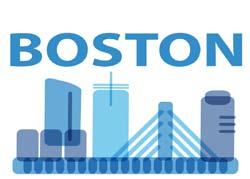
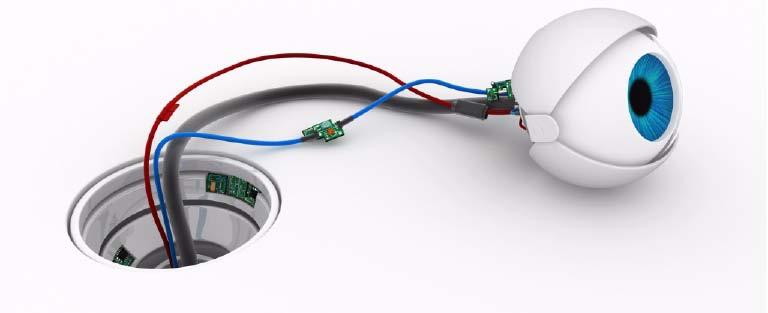
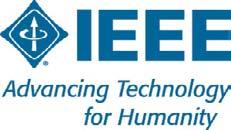
p.7
a dvanc E d d I g I tal d ESI gn: I mpl E m E nt I ng dEE p mach I n E l E arn I ng on fpga
p.24
Prof. dev. training: El E ctron I c fa I lur E m E chan IS m S ( o rgan I z E d by an S yS )
p.22
Prof. dev. training:
I ntroduct I on to n E ural n E twork S and d EE p l E arn I ng (part I )
p.26
Prof. dev. training: accElEratEd lIfE tEStIng for ElEctronIcS rElIabIlIty ( o rgan I z E d by an S yS )
p.23
Prof. dev. training:
d I g I tal SI gnal proc ESSI ng
(d S p) for S oftwar E rad I o
p.28
I SS u E #9
2023
TABLE OF CONTENTS
The Reflector, September 2023 2
Editorial - “The Impact of IEEE, Why I Will Double Down on It!” ”, by Maira Samary, Vice Chair, IEEE Boston Section ..................................................................................... Page 3 Call for Volunteers (EMBS and CE Chapters) .......................................................................................... Page 4 IEEE Boston Section Online, self-paced, on-demand courses ................................................................ Page 6 2024 IEEE International Symposium on Phased Array Systems and Technology ................................... Page 7 IEEE Video Series (Five videos on issues and technologies that impact planet Earth), and Call for Articles of Interest ................................................................................................................. Page 8 IEEE 2023 Conference on High Performance Extreme Computing ......................................................... Page 9 Volunteers Wanted! for the IEEE Boston Section .................................................................................. Page 10 Antennas & Propagation, and Microwave Theory and Technology Societies ........................................ Page 11 Microsystems Council (Boston Chapter) ................................................................................................ Page 12 Aerospace & Electronic Systems, and Robotics and Automation Societies .......................................... Page 13 Power & Energy Society ....................................................................................................................... Page 14 Entrepreneurs’ Network........................................................................................................................... Page 15 Electromagnetics Compatibility Society ................................................................................................ Page 16 2023 IEEE EAB Major Education Innovation Award Recipient - Gerald J. Sussman, MIT .................. Page 18 Call for mCourse Speakers/Organizers ................................................................................................. Page 19 Call for Officer Nominations (Boston Power Electronics Society Chapter) Nominations Close September 30, 2024) ........................................................................................... Page 20 Consultants’ Network ............................................................................................................................. Page 21 Electronic Failure Mechanisms .............................................................................................................. Page 22 Accelerated Life Testing for Electronic Reliability .................................................................................. Page 23 Advanced Digital Design: Implementing Deep Machine Learning on FPGA ......................................... Page 24 Introduction to Neural Networks and Deep Learning (Part I) ................................................................. Page 26 Digital Signal Processing (DSP) for Software Radio (Note New dates!) .................................................... Page 28
The Impact of IEEE, Why I Will Double Down on It!
by Maira Samary, Vice Chair, IEEE Boston Section
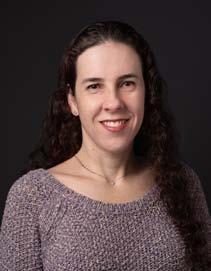
I have been an IEEE member since 2012, and I only joined because I wanted to attend a technical conference. I really become an active member in 2019 when I moved to Boston. I started my journey at WIE (Women in Engineering) and now I’m also active in the Boston Section Executive Committee.
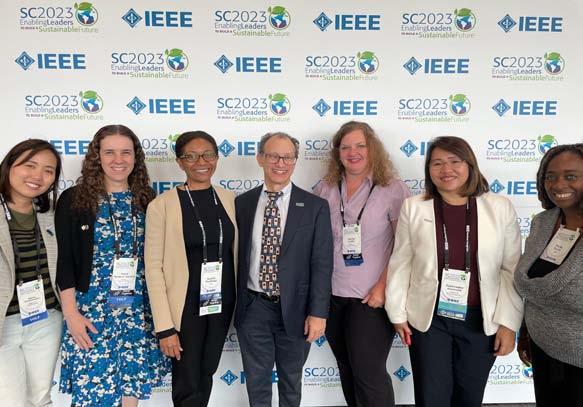
Last month, (August) I had the pleasure of representing Boston Section at the IEEE Sections Congress that was in Ottawa (https://sections-congress.ieee.org). The Sections Congress is a triennial gathering where volunteers from all regions and groups get together to see what is being done by all IEEE: sections, technical groups, affinity groups, policy groups, everyone.
of natural disasters with short-term communications, computer, and power solutions. They work side by side with Red Cross to help communities in distress. Also, about the IEEE Humanitarian Technologies Board, that has as goal to support impactful and ethically informed volunteer-led initiatives, programs and projects, and mutually beneficial partnerships, as well as to inform policy formulation.
There are many other initiatives and projects that are happening everywhere, things that many of us don’t know, but are powerful and are making a difference. I saw that sections and technical groups are managed in completely different ways, there is no one rule for everyone and everything. I also learned that now, IEEE and any section and technical activities group can offer continuing education units (CEUs) to participants of talks, events and this may attract more people to attend and be part of our events (https://www.ieee.org/education/credentialing/index.html).
I also had the opportunity to meet and talk with a lot of volunteers from all around the world, and even to meet and talk with people who are in IEEE leadership positions: Thomas Coughlin, Sophia Muirhead, Eduardo F. Palacio, Deborah M. Cooper. And they were there to listen to us volunteers, to see what we are doing and what can they do to help us to improve our world.
I learned a lot about the Move Initiative (https://move. ieeeusa.org), that is an emergency relief program that currently have 2 trucks fully capable of assisting victims
I really think that being a part of IEEE is inspiring, and we are all part of something bigger, even when we don’t realize it. We are all contributing to a better world, and it does not matter what role we have. Being a volunteer brings the perspective of what others are doing, help us make connections and learn things that we would not learn otherwise, and I definitely believe that can help us build a better world.
The Reflector, September 2023 3
From left to right: Khanita Duangchaemkarn, Maíra Marques Samary, Sophia Muirhead, Bruce Hecht, Denise Griffin, Supavadee Aramvith, Prya Davis
Consumer Technology Society Call for Volunteers!
We are currently looking for volunteers who would be interested in pushing forward the mission of the Consumer Technology (CT-S), Boston Chapter. The chapter is looking for volunteers to help organize chapter meetings and help meet the needs of the local CT-S member needs.
The Boston Section is organizing chapters into groups of similar technical interest areas to pool their resources for easier and better chapter collaboration in planning the chapter events.
If you have interest in volunteering for a chapter leadership position or are interested in learning more about what these volunteer positions may entail, please send an email to Karen Safina in the IEEE Boston Section office at, ieeebostonsection@gmail.com
Aakash Deliwala, Chair, IEEE Boston Consumer Technology Chapter
Engineering in Medicine & Biology Society Call for Volunteers!
We are currently looking for volunteers who would be interested in pushing forward the mission of the Engineering in Medicine & Biology Society (EMBS), Boston Chapter. The EMBS - Boston Chapter was recently approved in July 2021, and we’re looking to make a significant impact in the area of Biomedicine, Bioengineering, and Biotechnology in the region. The chapter is looking for volunteers to help organize chapter meetings and help meet the needs of the local EMBS members.
The Boston Section is organizing chapters into groups of similar technical interest areas to pool their resources for easier and better chapter collaboration in planning the chapter events.
If you have interest in volunteering for a chapter leadership position or are interested in learning more about what these volunteer positions may entail, please send an email to Karen Safina in the IEEE Boston Section office at, ieeebostonsection@gmail.com.
Aseem Singh, Marie Tupaj, Co-Chairs, Boston EMBS Chapter
The Reflector, September 2023 4

The Reflector, September 2023 5 What
IEEE 420,000+ members in 160 countries. Embrace the largest, global, technical community. People Driving Technological Innovation. ieee.org/membership #IEEEmember knowledge community professional development career advancement
+ If =
IEEE Boston Section Online Courses:
(Students have 180 day access to all online, self-paced courses)
Electronic Reliability Tutorial Series
Full course description and registration at , http://ieeeboston.org/electronic-reliability/
High Performance Project Management
Full course description and registration at , http://ieeeboston.org/high-performance-project-management-online-course/
Introduction to Embedded Linux Part I
Full course description and registration at , http://ieeeboston.org/introduction-to-embedded-linux-part-i-el201-online-course/
Embedded Linux Optimization - Tools and Techniques
Full course description and registration at , http://ieeeboston.org/embedded-linux-optimization-tools-techniques-line-course/
Embedded Linux Board Support Packages and Device Drivers
Full course description and registration at , http://ieeeboston.org/embedded-linux-bsps-device-drivers-line-course/
Software Development for Medical Device Manufacturers
Full course description and registration at , http://ieeeboston.org/software-development-medical-device-manufacturers-line-course/
Fundamental Mathematics Concepts Relating to Electromagnetics
Full course description and registration at , http://ieeeboston.org/fundamental-mathematics-concepts-relating-electromagnetics-line-course/
Reliability Engineering for the Business World
Full course description and registration at , http://ieeeboston.org/reliability-engineering-business-world-line-course/
Design Thinking for Today’s Technical Work
http://ieeeboston.org/design-thinking-technical-work-line-course/
Fundamentals of Real-Time Operating Systems
http://ieeeboston.org/fundamentals-of-real-time-operating-systems-rt201-on-line-course/
The Reflector, September 2023 6
Sponsors and Exhibitors
CALL FOR PAPERS
IEEE International Symposium on Phased Array Systems and Technology



15 - 18 October 2024
Hynes Convention Center
Boston, Massachusetts, USA
www ieee-array.org

About the Symposium
Phased array systems continue to be a rapidly evolving technology with steady advances motivated by the challenges presented to modern military and commercial applications. This symposium will present the most recent advances in phased array technology and offer a unique opportunity for members of the international community to interact with colleagues in the field of phased array systems and technology.
Committee
Symposium Chairs
Sean Duffy (C), MIT LL
Wajih Elsallal (VC), MITRE
Technical Program Chairs
David Mooradd (C), MIT LL
Glenn Hopkins (VC), GTRI
Special Sessions Chairs
Contact: sponsorships@ ieee-array.org
The committee is thrilled to announce two major changes to the symposium to better reflect the interest and pace of technol ogy development: (1) moving to the larger Hynes Convention Center in the Back-Bay neighborhood of Boston; and (2) increasing the symposium frequency to a two-year cadence.
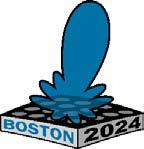
Be a Symposium Sponsor or Exhibitor
For sponsorship and exhibit opportunities please reach out to Mark McClure and Marc Angelucci at: sponsorships@ieee-array.org.
Suggested Topics
• 5G Arrays
• Array Design
Technical Co-Sponsors
• Array Measurements
• Array Signal Processing
• Automotive Arrays
• Beamforming & Calibration
• Digital Array Architectures
• Dual Polarized Arrays
• Low Cost Commercial Arrays
• MIMO Arrays
• Medical Applications
• Metamaterial Phased Arrays
• mmWave and Terahertz
• T/R Modules
• Low Frequency Arrays
• SATCOM Arrays
• Weather Arrays
• Wideband Arrays
Paper Template and Submission Procedures
Template and submission procedures are available at: https://ieee-array.org/call-for-papers
Important Dates
• Full paper submission (2-8 pages including figures): 13 May 2024
Media Sponsor

• Author notification: 22 July 2024
• Author registration deadline: 01 Sept 2024
We are looking forward to seeing you at this next gathering.
Matt Faccine, NGC
Kenneth E. Kolodziej, MIT LL
Plenary Session Chair
Will Moulder, MIT LL
William Weedon, Applied Radar
Student Program
Matilda Livadaru, Raytheon Tech
Justin Kasemodel, Raytheon Tech
Tutorials
Cara Kataria, MIT LL
Frank Vliet, TNO
Sponsorship and Exhibits
Marc Angelucci, LMC
Mark McClure, STR
Digital Platforms Chairs
Pierre Dufilie, Raytheon Tech
Jacob Houck, GTRI
Mark Fosberry, MITRE
Shireen Warnock, MIT LL
Publications/Publicity
Philip Zurek, MIT LL
Jack Logan, NRL
Elizabeth Kowalski, MIT LL
Poster Sessions Chair
Honglei Chen, MathWorks
Advisors
Daniel Culkin, NGC
Alan J. Fenn, MIT LL
Jeffery S. Herd, MIT LL
Bradley Perry, MIT LL
Arrangements/ Administration
Robert Alongi, IEEE Boston
Kathleen Ballos, Ballos Assoc.
The Reflector, September 2023 7 CFP 20230620
IEEE Video Series
A collaborative discussion panel featuring esteemed members from the Institute of Electrical and Electronics Engineers has convened in 2021 to produce educational video presentations that embrace IEEE’s mission of advancing technology for humanity.
Among the programs they’ve produced include “Electric Vehicles: Fun Saving Our Planet”, “Greener Power For More Electric Vehicles”, “Overcoming Nuclear Fears To Achieve Net Zero CO2 By 2050” and “Achieving a Net Zero Carbon Future”, “Green Energy’s Economic Progress”, and “Net-Zero CO2 with Nuclear, Hydrogen and Geothermal”. Projects currently in production include the expansive topic of futurology, with a focus on increasing the efficiency and transformation of aging electrical power generating stations and infrastructure to accommodate nuclear power; reviewing the viability of alternative energy (such as geothermal, wind and solar); and focusing on ‘cleaner’ fossil fuels that are more environmentally-friendly to slow the rate of climate change.
These shows are produced and directed by Lennart E. Long, IEEE Senior Life Member from the Executive Committee and Past Chair of the Boston Section; Dr. Paul H Carr, BS, MS, MIT; PhD Brandeis U, IEEE Life Fellow; Dr. Ted Kochanski, SB (MIT), Ph.D (U.Texas, Austin), IEEE Global Education for Microelectronic Systems and former Boston Section Chair; and Dr. Ken Laker, B.E. (Manhattan College), M.S. and Ph.D. (New York University), IEEE Life Fellow and past President of IEEE.
The panel is moderated by five-time Boston/New England Emmy Award-winner and television personality and star of “The Folklorist,” John Horrigan. These video programs with presentations and discussions can be accessed at the IEEE Boston Section video portal at https:// vimeo.com/user18608275.
We are looking for any IEEE members that would like to appear on the program in the role of presenter or discussion expert. Simply reach out to Robert Alongi at the Boston Section at, ieeebostonsection@gmail.com.
Call for Articles
Now that the Reflector is all electronic, we are expanding the content of the publication. One of the new features we will be adding are technical, professional development, and general interest articles to our members and the local technology community. These will supplement the existing material already in our publication.
Technical submissions should be of reasonable technical depth and include graphics and, if needed, any supporting files. The length is flexible; however, a four to five page limit should be used as a guide. An appropriate guide may be a technical paper in a conference proceeding rather than one in an IEEE journal or transaction.
Professional development or general interest articles should have broad applicability to the engineering community and should not explicitly promote services for which a fee or pay-
ment is required. A maximum length of two to three pages would be best.
To ensure quality, technical submissions will be reviewed by the appropriate technical area(s). Professional/interest articles will be reviewed by the Publications Committee for suitability.The author will be notified of the reviewers’ decision.
The Reflector is published the first of each month. The target submission deadline for the articles should be five weeks before the issue date (e.g., June 1st issue date; article submission is April 27). This will allow sufficient time for a thorough review and notification to the author.
We are excited about this new feature and hope you are eager to participate!
Submissions should be sent to; ieeebostonsection@gmail.com
The Reflector, September 2023 8


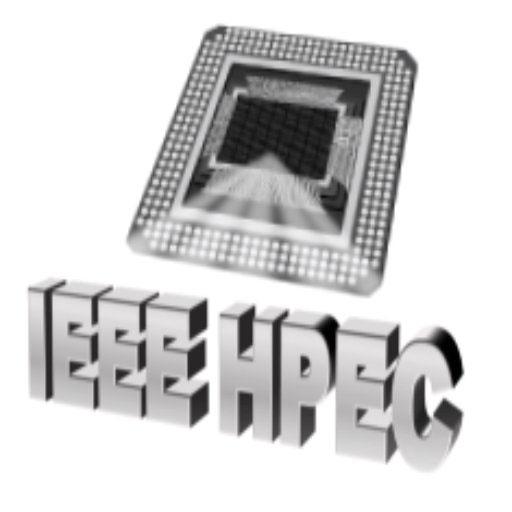
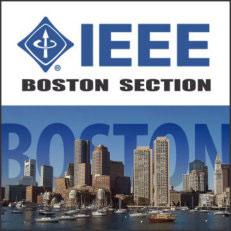

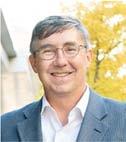
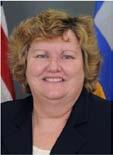
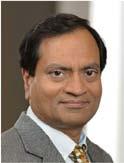

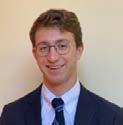

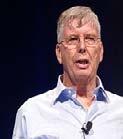
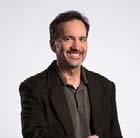
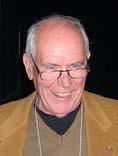
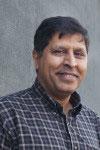
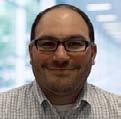
The Reflector, September 2023 9 Please join us at the 27th Annual IEEE High Performance Extreme Computing Virtual Conference 25—29 September 2023 Early Bird discount ends September 8 Complimentary Op�on Available IEEE‐HPEC.ORG Are you ready to dive into the world of cutting-edge technology and innovation? Look no further – the IEEE HPEC 2023 VIRTUAL conference is just around the corner! Visit the conference website ieee-hpec.org to complete your registration and learn more about the conference program, speakers, workshops, and more. This is your opportunity to connect with and learn from some of the brightest minds in the field. REGISTER NOW!
IEEE Boston Section Volunteers Wanted!
Are you passionate about technology and eager to contribute to the advancement of your field? The IEEE Boston Section is excited to announce a call for volunteers to join our dynamic team of professionals and enthusiasts. By becoming a volunteer, you’ll have the opportunity to collaborate with like-minded individuals, develop new skills, and make a meaningful impact on the local technology community.
About IEEE Boston Section:
The IEEE Boston Section is a thriving community of engineers, researchers, students, and industry professionals dedicated to promoting technological innovation and knowledge sharing. Our section hosts a variety of events, workshops, seminars, and conferences throughout the year, providing members with opportunities to learn, network, and stay updated on the latest developments in their fields.
Volunteer Opportunities:
We are currently seeking volunteers to help on the following committees:
The Fellow and Awards Committee - activities include recommending qualified members of the Section for advancement to Fellow grade and for receipt of the various IEEE (IEEE/Region/ MGA/Section) awards. Identifying and building a database of the various IEEE awards available for nomination and searching out qualified candidates, for preparing the necessary written recommendations, and for assembling all required supporting documentation and submit its recommendations directly to the appropriate IEEE body.
Time Commitment: Meets 4 times a year for 1 – 2 hours per meeting (virtual or in person)
Local Conferences Committee - activities include identifying timely topical areas for conference development. Identify champions of these conferences to run the identified conference organizing committees. The section local conference committee is not charged with organizing and executing individual conferences.
Time Commitment: Meets 4 times per year 1 – 2 hours per meeting (virtual or in person)
Professional Development & Education Committee - activities include identifying topics, speakers, and/or organizers for appropriate technical lecture series or seminars. The subject matter should be timely, of interest to a large segment of the membership, and well organized with regard to speakers and written subject matter.
Time Commitment: meets 4 times per year, 1 – 2 hours per meeting (virtual or in person)
The Membership Development Committee - activities include actively promoting membership in the IEEE and shall encourage members to advance to the highest grade of membership for which they are qualified. To these ends this committee shall include wide representation within the Section territory, shall maintain lists of
prospects and members qualified for advancement, and shall provide information and assistance to preparing applications. Time Commitment: meets 4 times per year, 1 – 2 hours per meeting (virtual or in person)
Student Activities Committee - activities include attracting a broad and diverse group of undergraduate and graduate students to IEEE and to engage them in activities that promote their own professional development as well as the ongoing growth of IEEE. The Student Activities Committee shall include among its members the IEEE Counselors at the universities, colleges, and technical institutes that lie within the Section territory. It shall be responsible for liaison with the Student Branches at these institutions and advise the Executive Committee on all other matters affecting the Student Members of the Section.
Time Commitment: meets 4 times per year, 1 – 2 hours per meeting (virtual or in person)
Young Professionals Affinity Group - activities include organizing programs, and initiatives aimed to address the needs of early-career professionals pursuing technology-related careers in engineering, business, management, marketing, and law. This committee is committed to helping young professionals evaluate their career goals, polish their professional image, and create the building blocks of a lifelong and diverse professional network. Time Commitment: meets 4 times per year, 1 – 2 hours per meeting (virtual or in person)
Benefits of Volunteering:
Volunteering with IEEE Boston Section offers numerous benefits, including:
• Networking opportunities with professionals in your field.
• Skill development and enhancement through hands-on experience.
• Contribution to the local technology community and its growth. Access to cutting-edge information and discussions.
How to Get Involved:
If you’re enthusiastic about technology and want to make a difference, we invite you to join us as a volunteer. To express your interest and learn more about specific roles, please visit our website and fill out the volunteer application form. Our team will get in touch with you to discuss opportunities that align with your interests and skills.
Thank you for considering this opportunity to contribute to the IEEE Boston Section. Your dedication and passion are what drive the success of our community and its impact on the world of technology.
The Reflector, September 2023 10
Volunteer Here!
https://ieeeboston.org/volunteer/
Antennas and Propagation and Microwave Theory and Technology Societies –7:00PM, Wednesday, September 6
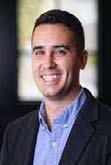
In-Space Manufacturing of Large Electrostatically Actuated Mesh Reflectors
Location: 125 Massachusetts Ave, Cambridge, Massachusetts, Building 33, Room #206
Large reflectors in space (>30 m diameter) can enable advances in communications, remote sensing, and astronomy, by enabling antennas with increased gain, resolution, and bandwidth. However, modern deployable reflectors exhibit a decrease in performance as their diameter increases, due to fabrication errors, slewing, and disturbances on orbit, such as thermal distortion, which decrease surface precision. A potential solution to achieve larger apertures with high precision is to combine in-space manufacturing (ISM) with active control. Herein we demonstrate a reflector concept which combines a candidate ISM process called Bend-Forming with electrostatic actuation to achieve closed-loop control of the reflector surface. We design and fabricate a 1-meter diameter prototype of an electrostatically actuated X-band reflector, using a knitted gold-molybdenum mesh as the reflector surface, carbon fiber-reinforced plastic booms as electrodes, and a truss support structure fabricated with Bend-Forming (a deformation process for constructing trusses from wire feedstock). To characterize the performance of this prototype, we measure its radiation patterns at X-band in an RF anechoic chamber. We successfully demonstrate 1) the stabilization of a pull-in instability with closed-loop control, and 2) beam steering of up to 4.2 degrees with asymmetric electro-
static actuation. Our reflector prototype highlights the opportunities of implementing electrostatically-actuated reflector antennas in space.
Zack Cordero is the Boeing Assistant Professor of Aeronautics and Astronautics at MIT where he leads the Aerospace Materials and Structures Laboratory. He received an SB in physics and a PhD in materials science and engineering from MIT. Prior to joining the MIT faculty, Zack held appointments as a postdoctoral fellow in the Manufacturing Demonstration Facility of Oak Ridge National Laboratory and as an assistant professor in the Materials Science and NanoEngineering department at Rice University. Zack’s research at MIT integrates materials processing, mechanics of materials, and structural design to develop new materials and structures for launch vehicles and spacecraft. In addition to his research, he is passionate about hands-on education for engineering students and has developed courses that integrate machine design, materials selection, and manufacturing to train the next generation of aerospace engineers. His website is http://cordero.mit. edu/
Registration: https://events.vtools.ieee.org/m/364869 Zoom link will be sent to those who register.
The Reflector, September 2023 11

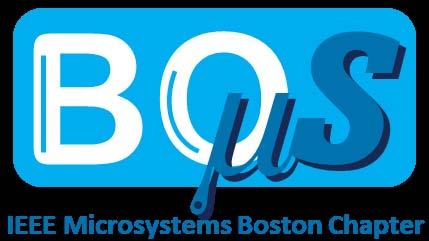
12 IEEE MICROSYSTEMS BOSTON CHAPTER LAUNCH EVENT 10 SEPTEMBER 3:00 PM With Keynote Speaker Dr. Carl McCants DARPA RSVP: https://forms.gle/taPuwKmjT8x1R9hA7 More information on our chapter website: https://webinabox.vtools.ieee.org/wibp_home/index/CH01295 Venue: Burlington Office Evolution 2 Burlington Woods Dr Suite 200 Burlington, MA 01803
Aerospace and Electronic Systems Society (AESS) and Robotics and Automation Society (RAS) –6:00PM, Tuesday, September 12
Dual-Use Sensor Applications from Electric Vehicle (EV)
Battery Manufacturing Test to Defense
Operational Efficiency
Speaker: Roman Sandoval, Founder and CEO, Allosense, Inc.
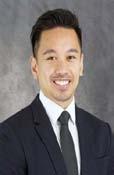
Location: MIT LL, 3 Forbes Road, Lexington, MA
This presentation explores the interrelation between the rapid advancements in Electric Vehicle (EV) battery manufacturing processes and their potential dual-use applications in defense operations. As the EV market rapidly grows, the emphasis on efficient manufacturing, in-depth testing, and seamless data interconnectivity across test systems becomes paramount. These advancements are relevant in research engagements with the Air Force and Space Force.
In the EV battery manufacturing industry, strict quality measures coupled with innovative testing approaches, including pulse and thermography scanning, are employed. Critical to this discussion is data aggregation across sensors and test stations, providing a holistic digital representation of assembled EV battery packs. Digital representations improve production throughput, product quality, traceability, and life cycle considerations for manufacturers.
Beyond the automated factory setting, the principles underlying sensor data aggregation support defense applications in generating a Common Operating Picture (COP) across energized assets including aerospace ground equipment. The COP, facilitated by persistent data-ingestion protocols, promises swift information exchange from the edge to network for real-time situational awareness and quick decision-making. These
benefits improve operations and offer time savings for managing assets on the flight line or spaceport.
Roman Sandoval is the founder and CEO of Allosense, Inc. - a technology startup that makes advanced sensors and measurement solutions for Electric Vehicle (EV) battery manufacturing and equipment monitoring. Drawing on his 15-year RF systems engineering background, Roman supported the launch of several new product introductions (NPIs) including the Tesla Model 3, Apple iPhone, Intel chipsets, Qualcomm modems, nuclear scanning systems, and EV battery systems, overseeing more than $150M of high-volume manufacturing test equipment and product during various production ramps.
Roman is an active participant in various business accelerators and portfolios: Techstars Industries of the Future (partnership with the Department of Energy’s Oak Ridge National Laboratory), NSIN Propel, Plug and Play. Oracle Netsuite, OnDeck, Capital Factory, and Expa. He earned his degree in Computer Engineering & Engineering Entrepreneurship from the Pennsylvania State University in 2010. Roman remains passionate about technology, community service, and entrepreneurship.
Registration and Information: https://events.vtools.ieee.org/m/370377
The Reflector, September 2023 13
Power & Energy Society – 6:00PM, Thursday, September 14
2023 Annual Banquet -
The Road To Massachusetts & The Path Forward
Speaker: James Van Nostrand, Chair, Massachusetts Department of Public Utilities
Come and join us for an evening of fun and networking!!! Featuring: Buffet style dinner, cash bar and live jazz from Beacon Street Band
Time: Pre-dinner drinks at 6:00 pm. Program commences at 6:30pm
Location: Four Points by Sheraton Boston Newton 320 Washington Street Newton, MA 02468
Registration Details
$65 per Member* / $75 per non-Member / $30 per student. *Please email ami.vyas@atlanticshoreswind. com with your IEEE PES member number for the member discount code; $560 per table of eight
Parking passes available for $10 – please bring cash to the event. Parking is $15 without pass
Online Registration*: https://www.eventbrite.com/e/ ieee-pes-boston-chapters-2023-annualbanquet-tickets-698667763087?aff=oddtdtcreator **A small convenience fee will apply to online ticket transactions.
Checks are also acceptable. Please make the check payable to IEEE PES Boston Chapter and mail it to: Jack Martin, IEEE PES Boston Treasurer 50 Church Street, Westwood, MA 02090
Registration Closing Date and Time: 3PM on Monday, September 11, 2023
Sponsorship opportunities available. Send inquiries to Amsa.Mangga@Eversource.com
Visit IEEE PES Boston Chapter’s website for details! https://site.ieee.org/boston-pes/
Power & Energy Society Call for Award Nominations
Hello IEEE PES Boston Members,
It’s that time of the year where we recognize the outstanding achievements and efforts of our members over the past year (2022). Please save the date for our Annual Banquet which will be on September 14th, 2023. More details to follow.
Annually, Boston Chapter of the IEEE Power and Energy Society seeks nominations for the following awards:
• Outstanding Engineer Award (OEA) – This award is presented annually to an individual to recognize outstanding technical, professional and society contributions on behalf of the power engineer profession. Click here for OEA nomination form
• Outstanding Young Engineer Award (OYEA)
– This award is presented annually to recognize an engineer 35 years of age or under “for outstanding contributions in the leadership of technical society activities including local and/or transnational PES and other technical societies, leadership in community and hu-
manitarian activities, and evidence of technical competence through significant engineering achievements.” Click here for OYEA nomination form
• Outstanding Volunteer Award (OVA) – This award is presented annually to an individual to recognize a PES volunteer for outstanding engagement in support of PES Boston Chapter programs. Click here for OVA nomination form
Let us celebrate the achievements of the engineers making a difference in our industry. Please use the linked forms to send in your nominations. The deadline for all applications is September 8th, 2023. The winners will be announced and recognized at the IEEE PES Boston Chapter Annual Banquet on September 14th, 2023.
Please find more details and a list of previous winners here: https://site.ieee.org/boston-pes/awards/
Thank you, Amsa Mangga, IEEE PES Boston Chair
The Reflector, September 2023 14
Entrepreneurs’ Network – 6:00PM, Tuesday, September 19
Seed and Angel Funding for Science Founders
ENET is pleased to announce the first event of our 33rd program year. This event will be held as a hybrid event! Attendees will have the option to join us in-person at the Cambridge Innovation Center in Cambridge, MA or online via Zoom.
Science entrepreneurs derive from a wide variety of geographic and educational backgrounds. Young or old(er), most share a strong passion for translating their ideas and data into commercial products and services to benefit the world. While the work is rewarding, it is a tremendously challenging endeavor, from building the team to meeting regulatory requirements. Often, the most daunting challenge is raising the financing needed to get started.
The panelists for tonight’s ENET event have deep experience in launching science startups, from the perspectives of founder, investor and legal views they are looking forward to sharing their insights with you. Please join us for an engaging discussion and stellar networking.
More information:
This is a hybrid event. You may choose to participate in-person or online.
In-person Participation (check-in begins at 6:00 PM):
IEEE
Location: CIC, Cambridge, MA
Online Participation: Zoom links will be sent to all registrants after registration.
Registration:
COST AND RESERVATIONS: This event is free for ENET members and $15. for non-members. Click here to learn how to become a member. To expedite signin for the event, we ask that everyone — members as well as non-members — pre-register. Pre-registration is available until midnight the day before the meeting. If you cannot pre-register, you are welcome to register in person at the door while seats are available.
Event Schedule
6:30 pm ET – Registration - On-Site Check-in and Networking
7:00 pm ET - Introduction - ENET Chairperson’s announcements
7:10 pm ET - eMinute Pitch - up to 3 startups give a 90-second elevator pitch
7:25 pm ET - Expert Panel - expert speakers on the night’s topic
8:15 pm ET - Q & A - Moderator and Audience Q & A with the speakers
8:30 pm ET – Networking - Final Networking, including the night’s speakers
Twitter: https://twitter.com/ieeeboston
Facebook: https://www.facebook.com/IEEEBoston
YouTube: https://www.youtube.com/user/IEEEBostonSection
LinkedIn: https://www.linkedin.com/groups/IEEE-Boston-Section-3763694/about
The Reflector, September 2023 15
Boston Section Social Media Links:
Electromagnetic Compatibility Society, and NTS Labs – 8:00AM, Wednesday, September 27
2023 EMI EMC Summit
Where: NTS Boxborough (1146 Massachusetts Ave., Boxborough, MA 01719)
Parking: Available on site with parking attendants directing traffic as guests arrive
Get your tickets now to join us for the 2023 NTS Labs and the IEEE EMC Society - Boston Chapter EMI/EMC Summit. Learn from world renowned EMI/EMC experts:
• Duy Ho, Regulatory Lab Manager with Element
• Scott Carlson, EMI Principal Engineer with NTS Labs
• Colin E. Brench, Courtesy of IEEE
Vendors will be available to meet with attendees and tours of the Element NTS Labs Boxborough facility will be given throughout the day. Lunch will be provided. Seating will be limited.
Registration - https://www.eventbrite.com/e/emiemcsummit-2023-hosted-by-nts-labs-and-ieee-emc-society-boston-chapter-tickets-665644890787?aff=oddtdtcreator
Agenda
8:00 AM-8:45 AM - Breakfast
8:45 AM-9:00 AM - Introductions
9:00 AM-10:00 AM - Wireless/Bluetooth/5G Interface Requirements
10:00 AM-10:30 AM - Break
10:30 AM-11:30 AM - Methods of Measuring Shielding Effectiveness
11:30 AM-1:00 PM - Lunch
1:00 PM-2:00 PM - Art and Science of EMC Design
2:00 PM-2:30 PM - Break (Ice Cream Truck)
2:30 PM-3:30 PM - Art and Science of EMC design
EMC Summit: https://www.element.com/landing/2023-EMI-EMC-Summit-at-Boxborough
Speakers: Duy Ho - Regulatory Compliance Process and challenges for wireless devices
Wireless devices and technologies such as WIFI, Bluetooth, and 5G have become an integral part of modern society, offering connectivity to users worldwide. With the exponential growth of wireless devices on the market, there is a growing need for regulatory compliance testing and certification to ensure that these devices meet the stringent standards and requirements set by regulatory bodies. This presentation explores the process of FCC regulatory compliance testing and certification for radio devices in the US.
Regulatory requirements summary will be provided for some wireless technologies in this presentation, including the standards and protocols that must be met for device to be certified. The summary consists of the testing process for electromagnetic compatibility (EMC), radio frequency (RF), and RF Exposure (SAR), to ensure compliance with FCC regulatory standards.
The presentation also discusses the importance of certification and how it provides assurance to not only regular consumers, but also to the wireless device manufacturers (OEM) and regulatory bodies that a device meets the required standards. It also discusses the challenges and considerations when processing regulatory compliance testing and certification, including the complexity of the testing process, the need for specialized equipment and facilities, and the cost and time duration required.
Presented by Duy Ho, Regulatory Lab Manager at Element with 6+ years of experience in compliance RF testing of wireless technologies including WIFI DTS/ U-NII 802.11a/b/g/n/ac/ax, WIFI 6E, Bluetooth, NFC, UWB, WPT, 60GHz mmWave and cellular technologies such as GSM, WCDMA, LTE, NR 5G mmWave (FR1/ FR2). Mr. Ho is a graduate of University of California, Merced - holding a BS is Mechanical Engineering.
Scott Carlson - Methods of Measuring Shielding Effectiveness
During this discussion we will be covering 4 different standards used to measure shielding effectiveness (SE) of cables, connectors, and materials. We will pres-
The Reflector, September 2023 16
ent data comparing the SE methods for connectors and highlighting the different strengths of each method. We will discuss SE methods for complex shielded cables. We will show the SE methods used to measure materials in this case fiberglass vs carbon fiber panels.
Presented by Scott Carlson, the EMI Principal Engineer with NTS Labs with 20+ years of experience in EMI EMC. From building a new EMI laboratory from the ground up to overseeing engineering at multiple labs simultaneously, Mr. Carlson has a clear vision of what a successful EMI/EMC program is and how to get there.
Colin E. Brench - The Art and Science of EMC Design
EMC design is one of those subjects mired in tradition and often is impaired by design rules that do not quite apply to the situation at hand. Alternatively, there are very sophisticated tools using Computational Electromagnetic (CEM) techniques that are capable of solving complex problems with great precision – providing the user knows how to apply them appropriately.
This class (series of talks…) will provide many insights regarding the use of design tools, the most important lesson is to provide the attendee with a way of thinking through a design to minimize surprises that can so easily occur. Ensuring a balanced approach to EMC design, using a combination of the designers’ experience,
measurements, analysis and computational models, can make the resulting EMC design work much less uncertain. EMC design is really not just black magic – it is the combination of a good number of dark grey magic steps.
Presented by Colin E. Brench who provides consulting for multiple EMC industry specialties including development of computational electromagnetics tools for EMC, EMC standards, and EMC & SI training. After an extensive career including Master Engineer at Hewlett Packard, he’s cheerfully retired and always interested in helping to solve unusual RF or EML/EMC challenges while sharing his vast knowledge training on EMC topics. Mr. Brench appears courtesy of IEEE.
IEEE EMC Society - Boston Chapter has a mission to foster the development and facilitate the exchange of scientific and technological knowledge in the discipline of electromagnetic environmental effects and electromagnetic compatibility, as detailed in the EMCS’s field of interest (FOI), and promote literary, educational and professional aspects thereof, that benefit members, the profession and humanity.
NTS Labs is now part of Element Materials Technology - a team of over 9,000 Engaged Experts in North America, Europe, The Middle East, Australia, Asia and Africa ready to help you.
Call for Course Speakers/Organizers
IEEE’s core purpose is to foster technological innovation and excellence for the benefit of humanity. The IEEE Boston Section, its dedicated volunteers, and over 8,500 members are committed to fulfilling this core purpose to the local technology community through chapter meetings, conferences, continuing education short courses, and professional and educational activities.
Twice each year a committee of local IEEE volunteers meet to consider course topics for its continuing education program. This committee is comprised of practicing engineers in various technical disciplines. In an effort to expand these course topics for our members and the local technical community at large, the committee is publicizing this CALL FOR COURSE SPEAKERS AND ORGANIZERS.
The Boston Section is one of the largest and most technically divers sections of the IEEE. We have over 20 active chapters and affinity groups.
If you have an expertise that you feel might be of interest to our members, please submit that to our online course proposal form on the section’s website (www.ieeeboston.org) and click on the course proposal link (direct course proposal form link is http://ieeeboston.org/course-proposals/ . Alternatively, you may contact the IEEE Boston Section office at ieeebostonsection@gmail.com or 781 245 5405.
• Honoraria can be considered for course lecturers
• Applications oriented, practical focused courses are best (all courses should help attendees expand their knowledge based and help them do their job better after completing a course
• Courses should be no more than 2 full days, or 18 hours for a multi-evening course
• Your course will be publicized to over 10,000 local engineers
• You will be providing a valuable service to your profession
• Previous lecturers include: Dr. Steven Best, Colin Brench, Dan Boschen, to name a few.
The Reflector, September 2023 17
Professor Gerald J Sussman Recipient of the 2023 IEEE EAB Major Education Innovation Award
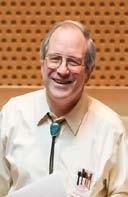
The Educational Activities Board of the IEEE recently announced that it is recognizing the exceptional achievements of Professor Gerald J Sussman of MIT by awarding him the 2023 IEEE EAB Major Education Innovation Award with the following citation:
“for inspiring students of computer science, engineering, and science with his ‘structure and interpretation’ approach, books, and MIT courses.”
The Major Education Innovation Award was established in 1984 by the Educational Activities Board of the IEEE to recognize individuals who have distinguished themselves for outstanding educational innovation in a field of interest of the IEEE. The award is given to IEEE Graduate Student Members, Members, Senior Members and Fellows whose innovation has made a major impact and been emulated outside the individual’s immediate environment.
The 2023 IEEE EAB Award Presentation Ceremony will take place Friday,17 November 2023, during the IEEE Meeting Series in Washington, DC, USA. Attendees will include the IEEE President, members of the IEEE Board of Directors, and other IEEE Officers.
Professor Sussman has long been active in the local research and education community. He gave a talk on his work to the Boston IEEE Computer Society Chapter in September 2022
<https://ewh.ieee.org/r1/boston/computer/Sussman2022.html>. An unedited recording of that talk is available to stream online at <https://ewh.ieee.org/r1/boston/computer/Sussman91522.mp4>.
Gerry Sussman co-developed the ideas used in MIT's introductory computer science course for over 23 years (from 1984-2007) and taught the course for much of that time.
Sussman is coauthor (with Hal Abelson and Julie Sussman) of "Structure and Interpretation of Computer Pro-
grams". It is currently in its 2nd edition and has been translated into French, German, Chinese, Polish, Japanese, and Korean. The textbook was the basis for courses at over a hundred colleges, universities, and high schools. MIT Press provided a list of over 100 colleges and universities using SICP as part of their course material in 1999 <https://web.archive.org/ web/20220606211353/https://mitpress.mit.edu/sites/ default/files/sicp/adopt-list.html>.
Brian Harvey, a former lecturer at the University of California, Berkeley gives a succinct description of "Why Structure and Interpretation of Computer Programs matters" at <https://people.eecs.berkeley.edu/~bh/sicp. html>.
The Structure and Interpretation course content continues to be available as part of MITOpenCourseWare <https://ocw.mit.edu/courses/6-001-structure-and-interpretation-of-computer-programs-spring-2005/> A variation of this course, based on Javascript, is being used by Martin Henz and others at the National University of Singapore <https://www.comp.nus.edu. sg/~cs1101s/>.
"Structure and Interpretation of Computer Programs: JavaScript Edition", an adaptation of the book for Javascript programmers ( coauthored with Martin Henz, Tobias Wrigstad, Harold Abelson, and Julie Sussman), was published in April, 2022.
Sussman pioneered the use of computational descriptions to communicate methodological ideas in teaching subjects in Electrical Circuits and in Signals and Systems. Over the past decades Sussman and Jack Wisdom developed computational techniques to communicate a deeper understanding of advanced Classical Mechanics. Computational algorithms are used to express the methods used in the analysis of dynamical phenomena. Expressing the methods in a computer language forces them to be unambiguous and computationally effective. Students are expected to read programs and to extend them and to write new ones. The task of formulating a method as a computer-executable
The Reflector, September 2023 18
program and debugging that program is a powerful exercise in the learning process. Also, once formalized procedurally, a mathematical idea becomes a tool that can be used directly to compute results. Sussman and Wisdom produced a textbook, "Structure and Interpretation of Classical Mechanics,'' and a monograph, "Functional Differential Geometry,'' to capture these ideas.
Sussman saw that Artificial Intelligence ideas can be applied to computer-aided design and, together with his graduate students, developed design tools for VLSI. In 1978, one of his students, Guy Steele, designed the first prototype Scheme chip (a direct hardware implementation of a subset of the Scheme language). In 1979, Sussman, working with Alan Bell, Jack Holloway and Guy Steele, designed the SCHEME-79 chip, which was the first fully operative hardware implementation of Scheme. The technique and experience developed was then used to design other special-purpose computers. Sussman was the principal designer of the Digital Orrery, a machine designed to do high-precision
integrations for orbital-mechanics experiments. Sussman was also the lead designer of the Supercomputer Toolkit, another multiprocessor computer optimized for evolving systems of ordinary differential equations. The Supercomputer Toolkit was used by Sussman and Wisdom to confirm and extend the discoveries made with the Digital Orrery to include the entire planetary system.
Sussman was involved with his former student Tom Knight in the founding of the field of Synthetic Biology and was a teacher in the first class of the IGEM (International Genetically Engineered Machine) competition.
Dr. Sussman is a life fellow of the IEEE, a fellow of the American Association for the Advancement of Science, a fellow of the Association for the Advancement of Artificial Intelligence, a fellow of the New York Academy of Sciences, a fellow of the American Academy of Arts and Sciences, a founding fellow of the ACM, and a member of the National Academy of Engineering. He has won the Amar G. Bose award for Engineering Education and the ACM Karl Karlstrom Outstanding Educator Award.
Call for Course Speakers/Organizers
IEEE’s core purpose is to foster technological innovation and excellence for the benefit of humanity. The IEEE Boston Section, its dedicated volunteers, and over 8,500 members are committed to fulfilling this core purpose to the local technology community through chapter meetings, conferences, continuing education short courses, and professional and educational activities.
Twice each year a committee of local IEEE volunteers meet to consider course topics for its continuing education program. This committee is comprised of practicing engineers in various technical disciplines. In an effort to expand these course topics for our members and the local technical community at large, the committee is publicizing this CALL FOR COURSE SPEAKERS AND ORGANIZERS.
The Boston Section is one of the largest and most technically divers sections of the IEEE. We have over 20 active chapters and affinity groups.
If you have an expertise that you feel might be of interest to our members, please submit that to our online course proposal form on the section’s website (www.ieeeboston.org) and click on the course proposal link (direct course proposal form link is http://ieeeboston.org/course-proposals/ . Alternatively, you may contact the IEEE Boston Section office at ieeebostonsection@gmail.com or 781 245 5405.
• Honoraria can be considered for course lecturers
• Applications oriented, practical focused courses are best (all courses should help attendees expand their knowledge based and help them do their job better after completing a course
• Courses should be no more than 2 full days, or 18 hours for a multi-evening course
• Your course will be publicized to over 10,000 local engineers
• You will be providing a valuable service to your profession
• Previous lecturers include: Dr. Steven Best, Colin Brench, Dan Boschen, to name a few.
The Reflector, September 2023 19
Call for Nominations Boston Chapter of the Power Electronics Society
The IEEE Boston Power Electronics Society Chapter is seeking qualified candidates for the following officer positions.
Chair Vice Chair Secretary Treasurer
(Note: The Secretary and Treasurer officer positions can be combined)
These positions are for two-year terms.
The deadline for nominations is September 30, 2023.
The election will be held in the October – November timeframe with the newly elected officers assuming their roles effective January 1, 2024.
Qualifications:
• Current IEEE Boston Section PELS member, and have a current IEEE member grade of, ” Graduate Student” or higher.
Interested qualified candidates should send an email to David Mendonca, IEEE Boston Section Secretary via the IEEE Boston Section office no later than, 5PM ET, September 30, 2023.
Please send your email to, ieeebostonsection@gmail.com.
The Reflector, September 2023 20 IEEE Boston Section Social Media Links: Twitter: https://twitter.com/ieeeboston Facebook: https://www.facebook.com/IEEEBoston YouTube: https://www.youtube.com/user/IEEEBostonSection LinkedIn: https://www.linkedin.com/groups/IEEE-Boston-Section-3763694/about
Consultants Network – 6:30PM, July to September 2023
Boston CNET Mid-Year Membership Drive
MEMBERSHIP DRIVE - 50% OFF MEMBERSHIP FROM JULY TO SEPTEMBER
Location: Your home
Registration: Membership Meeting - https://boston-consult.org/event-5341482
For a limited time get 50% off membership: Membership
IEEE Member $40.00 Non IEEE Member $50.00
No need to register for this event. Your participation in Boston CNET is appreciated, just click the Membership link. Reasons to join CNET? See the membership page link for member benefits. Membership
This is a limited time offer. Your membership is good till the end of 2023.
Were you a prior member of Boston CNET? This is a cost effective way to rejoin CNET for 2023 and enjoy member benefits. Please help fund Boston CNET for 2023. Become a member again - Membership.
We are listening to our members; please send us concerns or comments on how we can best meet your needs via the contacts page. If you have questions, please let us know. What can we do to entice you to join Boston CNET? We return phone calls; all officers respond to membership needs and requests. Officers and Contacts
This is part of a larger membership drive that will kick off in July. We hope to see you at one of our upcoming events. Please see our events page at this link for a list of upcoming events. Events
Thank you, Boston CNET Board of Directors
Twitter: https://twitter.com/ieeeboston
Facebook: https://www.facebook.com/IEEEBoston
YouTube: https://www.youtube.com/user/IEEEBostonSection
LinkedIn: https://www.linkedin.com/groups/IEEE-Boston-Section-3763694/about
The Reflector, September 2023 21
Boston Section Social Media Links:
IEEE
IEEE-Ansys Reliability Tutorial Series:
Electronic Failure Mechanisms
Web-based Course with live Instructor!
Times & Dates: 11AM - 1PM ET, October 4, 2023
Speaker: Dr. Nathan Blattau, Ansys
Course Format: Live Webinar
Whether in defense, healthcare, consumer electronics, or communication industries, having a fundamental knowledge of electronic packaging reliability is now crucial in order to develop safe and durable products. In this webinar, the common overstress and wearout failure mechanisms found in electronics will be presented. The failure mechanisms to be discussed include fracture, fatigue, wear, time independent dielectric breakdown, dendrite growth, and more. The discussion of each mechanism will include a description of the failure, the common life models used to predict the failure, and methods to mitigate the failure. The presentation will conclude with a brief look into the next generation of electronics packages and the expected reliability concerns as packages become more advanced.
This presentation is part of a two-lecture miniseries covering electronics reliability validation testing. This lecture focusses on developing a fundamental background of electronics failures. The subsequent lecture will focus on developing validation tests based on the fundamental failure mechanisms presented here.
TAKEAWAYS:
1) An understanding of the fundamental mechanical and electrical reliability concerns of electronics packages; once an understanding is developed, the mitigation techniques can be more easily conceived.
2) A list of the common failure mechanisms in elec-
tronics packages and the common life stress models used to describe them.
3) A glimpse into the future of electronic packaging and the reliability challenges that are predicted to arise.
Dr. Nathan Blattau, Ph.D.
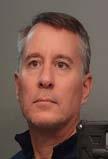
Dr. Nathan Blattau, Distinguished Engineer at Ansys, has been involved in the simulation and reliability of electronic equipment for over twenty years. Prior to joining Ansys, Dr. Blattau was the Vice President and Chief Scientist of DfR Solutions. He holds two patents and has authored over 20 papers and has presented on a wide variety of reliability issues within the electronics industry. His specialties include best practices in design for reliability, robustness of Pb-free, failure analysis, accelerated test plan development, nonlinear finite element analysis, and solder joint reliability. Dr. Blattau holds a Ph.D. in Mechanical Engineering, an M.S. in Mechanical Engineering, and a B.S. in Civil Engineering from the University of Maryland.
CEU/PDH are are availabe upon request. A small fee may apply for the credits
https://ieeeboston.org/event/ieee-ansys-reliability-tutorial-series-electronic-reliability-validation-testing/?instance_id=3473
The Reflector, September 2023 22
Decision (Run/Cancel) Date for this Course is Monday,
Payment IEEE Members $110 Non-members $120
October 1, 2023
Organized and Presented by Ansys Corp.
IEEE-Ansys Reliability Tutorial Series:
Accelerated Life Testing for Electronics Reliability
Web-based Course with live Instructor!
Times & Dates: 11AM - 1PM ET, October 5, 2023
Speaker: Dr. Jon Kordell, Ansys Course Format: Live Webinar
Whether in the defense, healthcare, consumer electronics, or communication industries, performing electronic packaging reliability demonstration tests is a crucial part of the design process. This webinar will cover a wide range of accelerated life tests (ALT), including ALT tests at the device level to determine characteristic life, highly accelerated life tests (HALT) to determine design flaws, highly accelerated stress screens (HASS) to catch manufacturing defects, and board level reliability tests (BLTR) to demonstrate product reliability. The discussion of each test will include a definition of the test, recommendations on how to design and complete the test, and how to process the results. The lecture is focused on electronics reliability and will use electronics examples to aid in the discussion.
This presentation is the second part of a two-lecture miniseries covering electronics reliability validation testing. The previous lecture focused on developing a fundamental background of electronics failures. This lecture will focus on using those fundamentals to develop validation tests based.
TAKEAWAYS:
1) How to use accelerated life testing to predict product life in the field.
2) Understanding the differences between the different ALT test – ALT/HALT/HASS/BLRT
3) How to develop a reliability demonstration test.
Dr. Jon Kordell, Ph.D
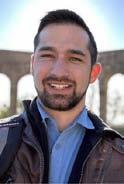
Jonathan Kordell is a Senior Reliability Consulting Engineer at Ansys with 8 years of experience in electronic packaging reliability, accelerated testing and failure analysis. His current role is focused on the reliability of electronic devices in a range of environments via a combination of physical characterization and analytical modeling including finite element analysis. Jonathan received his PhD in mechanical engineering from the University of Maryland at the Center for Advanced Life Cycle Engineering (CALCE).
CEU/PDH are are availabe upon request. A small fee may apply for the credits
Decision (Run/Cancel) Date for this Course is Monday, October 1, 2023
Payment
IEEE Members $110
Non-members $120
https://ieeeboston.org/event/ieee-ansys-reliability-tutorial-series/?instance_id=3475
The Reflector, September 2023 23
Organized and Presented by Ansys Corp.
Advanced Digital Design: Implementing Deep Machine Learning on FPGA
Times & Dates: 6 - PM ET, Mondays, Jan. 22, 29, Feb. 5, 12, 19, 26, 2024
Speaker: Kendall Farnham, Dartmouth College
Location: MITRE Corporation, Bedford, MA
Course Overview:
Field-programmable gate arrays (FPGAs) are versatile integrated circuits that offer a flexible and reconfigurable hardware platform for implementing custom digital circuits, particularly in applications requiring specialized architectures. Unlike application-specific integrated circuits (ASICs), FPGAs can be programmed and reprogrammed after manufacturing using hardware description languages (HDLs), enabling rapid prototyping and iterative design processes. FPGAs can be found in telecommunications, signal processing, aerospace, and other scenarios demanding high-performance computing, parallel processing, low-latency data processing, and real-time operations. The newest trends include integrating FPGAs with systems on chip (SoCs) for implementing low-latency machine learning (ML) and artificial intelligence.
This Advanced Digital Design course is an intensive program designed to build upon foundational concepts in digital logic design and equip students with the skills needed to implement robust high-speed ML algorithms on an FPGA. Through a combination of theoretical lectures, hands-on exercises, and practical projects, students will explore advanced FPGA topics encompassing architectural considerations, signal integrity, timing analysis, and optimization techniques to achieve reliable and efficient high-speed designs. Additionally, this course will encourage students to explore current research papers and real-world industry applications to foster a deeper appreciation for advancements in stateof-the-art FPGA design.
Target audience:
Students and professionals with a base knowledge of FPGA design looking to advance hardware design skills for developing complex customized circuits for efficient implementation of ML.
Benefits of attending:
• Valuable professional development creating skills that lead to job offers
• Reinforce and expand knowledge of VHDL and FPGA-specific design methodology.
• Develop skills for implementing high-speed, robust, reliable circuits on FPGAs.
• Gain understanding of real-world industry applications of FPGAs and SoCs.
Course Objectives:
By the end of this course, students will possess the expertise needed to tackle complex high-speed hardware design challenges using FPGAs. They will be well-prepared to contribute to cutting-edge research, industry projects, and advancements in areas such as telecommunications, data centers, embedded systems, and high-performance computing.
Prerequisites:
• Understanding of digital logic design principles and methodology (e.g., Boolean algebra, finite state machines, data path elements)
• Familiarity with VHDL programming (or Verilog)
• Experience with FPGA development boards and tools (e.g., Vivado)
Speaker Bio:
Kendall Farnham is a PhD candidate in Dr. Ryan Halter’s bioimpedance lab at the Thayer School of Engineering, Dartmouth College. She has 10+ years of experience in the electrical and computer engineering (ECE) field and 5+ years of teaching and mentoring experience, having held several leadership positions within academia and industry. She received her bachelor’s degree in ECE in 2014, worked in the defense industry as a software engineer for 4 years where she discovered her passion for research, and returned to
The Reflector, September 2023 24
school to expand her education to include hardware design for space medicine applications. Specifically, she is interested in FPGA-based biomedical device design, currently working to develop space-compatible technologies that use impedance to monitor and detect physiological effects of space travel. Her expertise includes high-performance FPGA-based digital system design, analog circuit design, multi-modal imaging algorithms, and system integration.
Course Outline:
1. Review of Digital Logic Design and FPGA Programming
• Boolean algebra, combinational and sequential circuits, finite state machines
• FPGA, SoC, and SoM architectures and toolchains
• VHDL programming techniques and design methodology
• Writing effective testbenches, RTL simulation in Vivado
• Introduction to ML algorithms and FPGA-specific optimization strategies
2. High-throughput Communication on FPGAs
• Pipelining and parallelism for high-speed designs
• Synchronous vs. asynchronous communication protocols (SPI, SCI, UART, LVDS, I2C, PCIe, USB, Ethernet, etc.)
• Compare hardware/software/firmware implementations of ML: throughput speeds, resource utilization, and latency
• Methods used to achieve ultra-high sampling rates (>> system clock, GS/s range)
• Utilizing advanced IP cores and IO buffers for high-speed interfaces and data storage
3. Advanced FPGA Techniques for High-speed Systems
• Clock domain crossing verification and synchronization techniques
• Resource utilization, critical path identification, and optimization strategies
• Timing constraints, static and dynamic timing analysis
• Signal integrity analysis
4. High-Speed Design Verification and Testing
• Simulation-based verification techniques, advanced debugging, and waveform analysis
• Post-layout verification and back-annotation
• Test and validation strategies for high-speed designs
• Utilizing debug cores for real-time logic analysis
5. Machine Learning on FPGAs
• Algorithm validation and verification in software
• Compare capabilities and implementation strategies of ML on FPGAs, SoCs, and SoMs
• Optimization strategies for efficient ML implementation in hardware (e.g., convolution)
6. Digital Systems in Industry
• Techniques and best practices for scalable, reusable, reliable, and robust FPGA design
• Board-level considerations for high-speed signals: PCB layout guidelines, power distribution and decoupling, transmission line theory and termination techniques
• Emerging trends for FPGA-based digital signal processing (DSP) applications
CEU/PDH are are availabe upon request. A small fee may apply for the credits
The Reflector, September 2023 25
Decision (Run/Cancel) Date for this Course is Friday, January 12, 2024 Payment By Jan. 5 After Jan.5 IEEE Members $120 $140 Non-members $300 $400 https://ieeeboston.org/event/advanced-digital-design/?instance_id=3481
Introduction to Neural Networks and Deep Learning (Part I)
Web-based Course with live Instructor!
Times & Dates: 9AM - 12:30PM ET, Saturday, October 21, 2023
Speaker: CL Kim
Course Format: Live Webinar, 3.5 hours of instruction!
Series Overview: Neural networks and deep learning currently provides the best solutions to many problems in image recognition, speech recognition, and natural language processing.”
Reference book: “Neural Networks and Deep Learning” by Michael Nielsen, http://neuralnetworksanddeeplearning.com/
This Part 1 and the planned Part 2, (to be confirmed) series of courses will teach many of the core concepts behind neural networks and deep learning.
More from the book introduction: We’ll learn the core principles behind neural networks and deep learning by attacking a concrete problem: the problem of teaching a computer to recognize handwritten digits. …it can be solved pretty well using a simple neural network, with just a few tens of lines of code, and no special libraries.”
“But you don’t need to be a professional programmer.”
The code provided is in Python, which even if you don’t program in Python, should be easy to understand with just a little effort.
Benefits of attending the series:
* Learn the core principles behind neural networks and deep learning.
* See a simple Python program that solves a concrete problem: teaching a computer to recognize a handwritten digit.
* Improve the result through incorporating more and more core ideas about neural networks and deep learning.
* Understand the theory, with worked-out proofs of fundamental equations of backpropagation for those interested.
* Run straightforward Python demo code example.
The demo Python program (updated from version provided in the book) can be downloaded from the speaker’s GitHub account. The demo program is run in a Docker container that runs on your Mac, Windows, or Linux personal computer; we plan to provide instructions on doing that in advance of the class.
(That would be one good reason to register early if you plan to attend, in order that you can receive the straightforward instructions and leave yourself with plenty of time to prepare the Git and Docker software that are widely used among software professionals.)
Course Background and Content: This is a live instructor-led introductory course on Neural Networks and Deep Learning. It is planned to be a two-part series of courses. The first course is complete by itself and covers a feedforward neural network (but not convolutional neural network in Part 1). It will be a pre-requisite for the planned Part 2 second course. The class material is mostly from the highly-regarded and free online book “Neural Networks and Deep Learning” by Michael Nielsen, plus additional material such as some proofs of fundamental equations not provided in the book.
Outline:
Feedforward Neural Networks.
* Simple (Python) Network to classify a handwritten digit
* Learning with Stochastic Gradient Descent
* How the backpropagation algorithm works
* Improving the way neural networks learn:
** Cross-entropy cost function
** Softmax activation function and log-likelihood cost function
** Rectified Linear Unit
** Overfitting and Regularization:
*** L2 regularization
*** Dropout
*** Artificially expanding data set
Pre-requisites: There is some heavier mathematics in learning the four fundamental equations behind backpropagation, so a basic familiarity with multivariable calculus and matrix algebra is expected, but nothing advanced is required. (The backpropagation equations can be also just accepted without bothering with the proofs since the provided Python code for the simple network just make use of the equations.) Basic familiarity with Python or similar computer language.
The Reflector, September 2023 26
Speaker Background: CL Kim works in Software Engineering at CarGurus, Inc. He has graduate degrees in Business Administration and in Computer and Information Science from the University of Pennsylvania. He had previously taught for a few years the well-rated IEEE Boston Section class on introduction to the Android platform and API.
Decision (Run/Cancel) Date for this Course is Friday, October 13, 2023
Payment on/by Oct 6 After Oct 6
IEEE Members $95 $110
Non-members $115 $130
https://ieeeboston.org/event/neuralnetworks/?instance_id=3453
Call for Course Speakers/Organizers
IEEE’s core purpose is to foster technological innovation and excellence for the benefit of humanity. The IEEE Boston Section, its dedicated volunteers, and over 8,500 members are committed to fulfilling this core purpose to the local technology community through chapter meetings, conferences, continuing education short courses, and professional and educational activities.
Twice each year a committee of local IEEE volunteers meet to consider course topics for its continuing education program. This committee is comprised of practicing engineers in various technical disciplines. In an effort to expand these course topics for our members and the local technical community at large, the committee is publicizing this CALL FOR COURSE SPEAKERS AND ORGANIZERS.
The Boston Section is one of the largest and most technically divers sections of the IEEE. We have over 20 active chapters and affinity groups. If you have an expertise that you feel might be of
interest to our members, please submit that to our online course proposal form on the section’s website (www.ieeeboston.org) and click on the course proposal link (direct course proposal form link is http://ieeeboston.org/course-proposals/ Alternatively, you may contact the IEEE Boston Section office at ieeebostonsection@gmail.com or 781 245 5405.
• Honoraria can be considered for course lecturers
• Applications oriented, practical focused courses are best (all courses should help attendees expand their knowledge based and help them do their job better after completing a course
• Courses should be no more than 2 full days, or 18 hours for a multi-evening course
• Your course will be publicized to over 10,000 local engineers
• You will be providing a valuable service to your profession
• Previous lecturers include: Dr. Eli Brookner, Dr. Steven Best, Colin Brench, to name a few.
The Reflector, September 2023 27
Digital Signal Processing (DSP) for Software Radio (Note
New Dates!)
Dates & Times: Live Workshops: 6 - 7:30PM EST; Thursdays, September 28, October 5, 12, 19, 26
First Video Release and orientation, 6 - 6:30PM September 21, 2023
Additional videos released weekly in advance of that week’s live session!
Speaker: Dan Boschen
Location: Zoom
Attendees will have access to the recorded session and exercises for two months (until January 16, 2024) after the last live session ends!
This is a hands-on course providing pre-recorded lectures that students can watch on their own schedule and an unlimited number of times prior to live Q&A/Workshop sessions with the instructor. Ten 1.5 hour videos released 2 per week while the course is in session will be available for up to two months after the conclusion of the course.
Course Summary This course builds on the IEEE course “DSP for Wireless Communications” also taught by Dan Boschen, further detailing digital signal processing most applicable to practical real-world problems and applications in radio communication systems. Students need not have taken the prior course if they are familiar with fundamental DSP concepts such as the Laplace and Z transform and basic digital filter design principles.
This course brings together core DSP concepts to address signal processing challenges encountered in radios and modems for modern wireless communications. Specific areas covered include carrier and timing recovery, equalization, automatic gain control, and considerations to mitigate the effects of RF and channel distortions such as multipath, phase noise and amplitude/phase offsets.
Dan builds an intuitive understanding of the underlying mathematics through the use of graphics, visual demonstrations, and real-world applications for mixed
signal (analog/digital) modern transceivers. This course is applicable to DSP algorithm development with a focus on meeting practical hardware development challenges, rather than a tutorial on implementations with DSP processors.
Now with Jupyter Notebooks! This long-running IEEE Course has been updated to include Jupyter Notebooks which incorporates graphics together with Python simulation code to provide a “take-it-with-you” interactive user experience. No knowledge of Python is required but the notebooks will provide a basic framework for proceeding with further signal processing development using that tools for those that have interest in doing so.
This course will not be teaching Python, but using it for demonstration. A more detailed course on Python itself is covered in a separate IEEE Course routinely taught by Dan titled “Python Applications for Digital Design and Signal Processing”.
All set-up information for installation of all tools used will be provided prior to the start of class.
Target Audience: All engineers involved in or interested in signal processing for wireless communications. Students should have either taken the earlier course “DSP for Wireless Communications” or have been sufficiently exposed to basic signal processing concepts such as Fourier, Laplace, and Z-transforms, Digital filter (FIR/IIR) structures, and representation of complex digital and analog signals in the time and frequency do-
The Reflector, September 2023 28
if you are uncertain about your background or if you would like more information on the course.
Benefits of Attending/ Goals of Course:
Attendees will gain a strong intuitive understanding of the practical and common signal processing implementations found in modern radio and modem architectures and be able to apply these concepts directly to communications system design.
Topics / Schedule:
Class 1: DSP Review, Radio Architectures, Digital Mapping, Pulse Shaping, Eye Diagrams

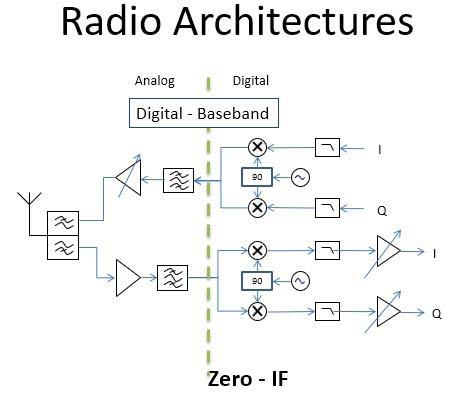
Class 2: ADC Receiver, CORDIC Rotator, Digital Down Converters, Numerically Controlled Oscillators
Class 3: Digital Control Loops; Output Power Control, Automatic Gain Control
Class 4: Digital Control Loops; Carrier and Timing Recovery, Sigma Delta Converters
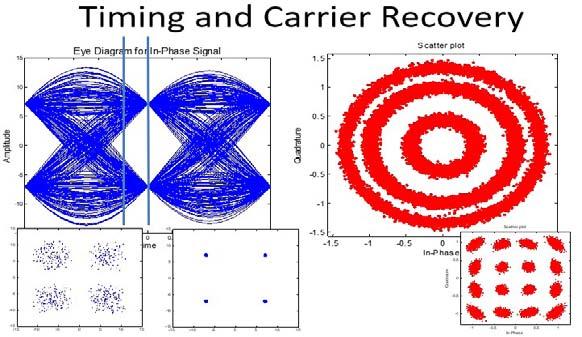
Class 5: RF Signal Impairments, Equalization and Compensation, Linear Feedback Shift Registers
Speaker’s Bio:
Dan Boschen has a MS in Communications and Signal Processing from Northeastern University, with over 25 years of experience in system and hardware design for radio transceivers and modems. He has held various positions at Signal Technologies, MITRE, Airvana and Hittite Microwave designing and developing transceiver hardware from baseband to antenna for wireless communications systems and has taught courses on DSP to international audiences for over 15 years. Dan is a contributor to Signal Processing Stack Exchange https:// dsp.stackexchange.com/, and is currently at Microchip (formerly Microsemi and Symmetricom) leading design efforts for advanced frequency and time solutions.
Decision (Run/Cancel) Date for this Course is Monday, September 18, 2023
IEEE Members $190
Non-members $210
For more background information, please view Dan’s Linked-In page at: http://www.linkedin.com/in/danboschen
https://ieeeboston.org/event/dspswradio/?instance_id=3429
The Reflector, September 2023 29
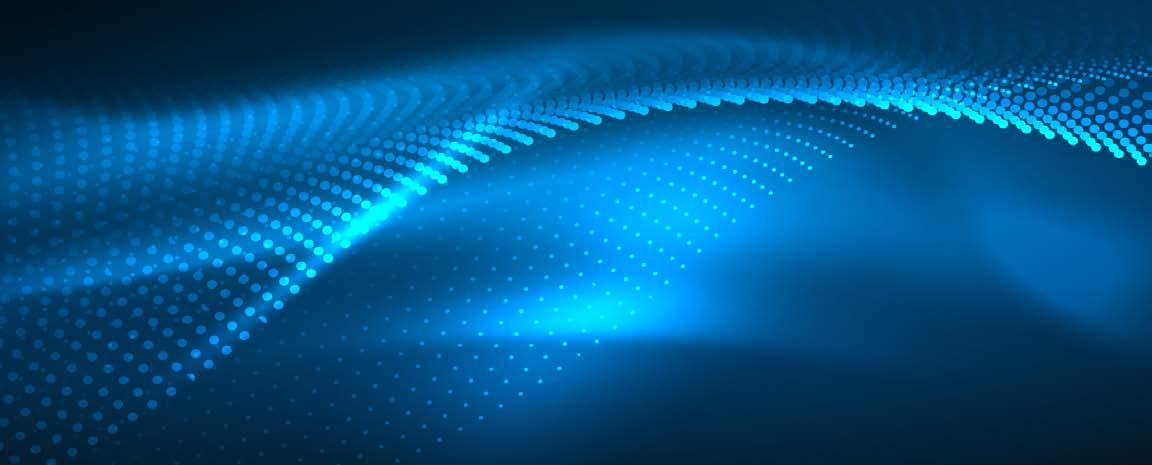

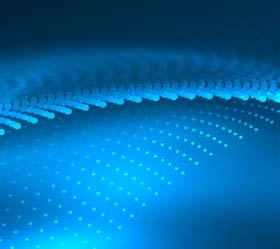

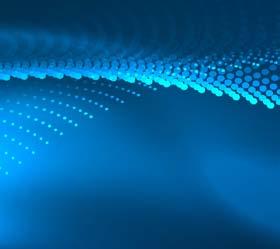



The Reflector, September 2023 30 Every Wednesday in October 2023 4 Focused Tracks With Free Seminars ONLINE Oct. 4 Signal Integrity/Power Integrity Oct. 11 5G/ Wi-Fi/ IoT Oct. 18 PCB/ Interconnect/ EMC-EMI Oct. 25 Radar/ Automotive/ SATCOM EDICONONLINE.COM Register Now! Platinum Sponsors: EARN IEEE CEU/PDH CREDITS! WIN A BOOK FROM ARTECH HOUSE!











































